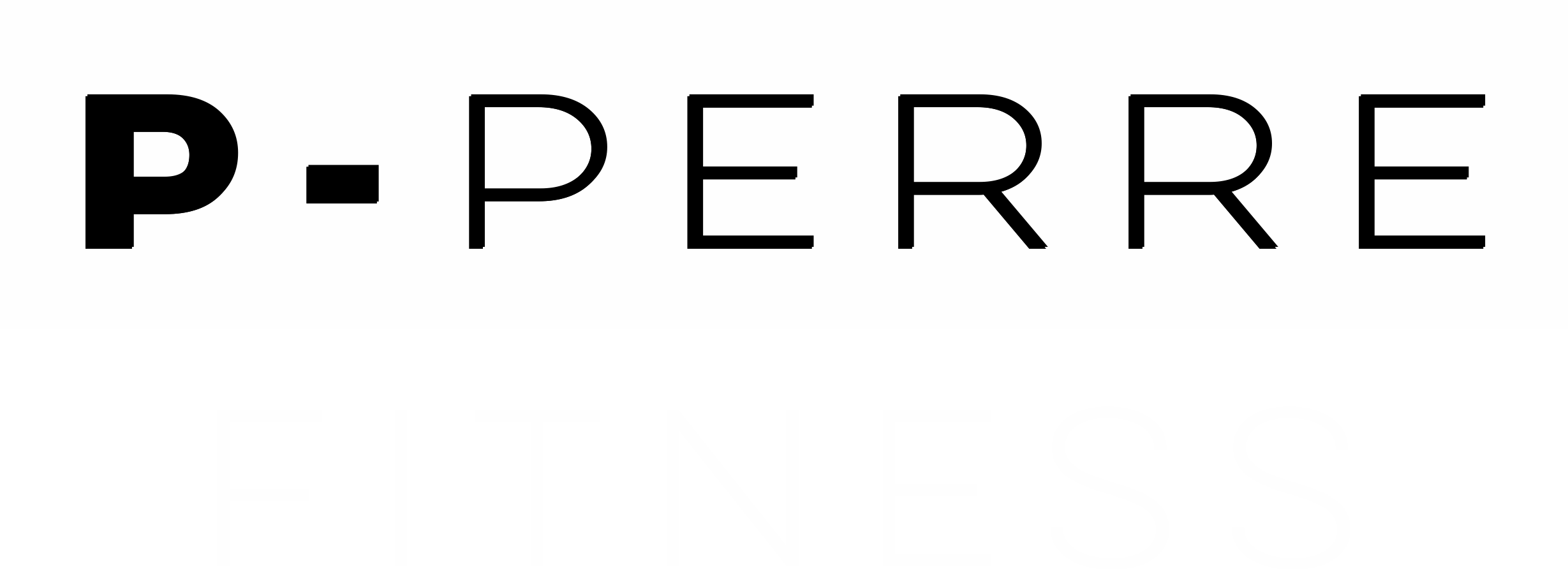Introduction:
In the pursuit of a healthier and fitter lifestyle, enlisting the expertise of a personal trainer can be a game-changer. Whether you’re a fitness enthusiast aiming to break through plateaus or a beginner taking the first steps on your wellness journey, finding the right personal trainer is crucial. In this comprehensive guide, we will delve into the key factors that make a personal trainer exceptional, the benefits of having a dedicated fitness professional by your side, and how to navigate the process of selecting the perfect trainer to meet your unique needs.
I. The Role of a Personal Trainer:
Understanding the fundamental role of a personal trainer is the first step towards making an informed decision. A personal trainer goes beyond simply demonstrating exercises; they serve as educators, motivators, and supporters throughout your fitness journey. Their expertise encompasses designing tailored workout routines, providing nutritional guidance, monitoring your progress, and adjusting your program as needed. With the right personal trainer, you gain access to a wealth of knowledge that can significantly impact your overall well-being.
II. The Benefits of Hiring a Personal Trainer:
- Customized Workout Plans: Personal trainers excel in creating personalized workout plans based on individual goals, fitness levels, and any specific health considerations. This ensures that every exercise contributes to your progress and minimizes the risk of injury.
- Motivation and Accountability: Consistency is key in any fitness journey, and personal trainers act as reliable sources of motivation and accountability. Their encouragement and guidance can be the driving force behind your commitment to regular exercise.
- Effective Time Management: Personal trainers are skilled at optimizing your workout sessions for maximum efficiency. This is particularly beneficial for individuals with busy schedules, as they can help you achieve optimal results in shorter timeframes.
- Variety and Innovation: Stale routines can lead to boredom and decreased motivation. A personal trainer keeps your workouts engaging by introducing variety and innovative exercises, preventing monotony and maintaining your interest in fitness.
- Educational Component: Beyond the gym, personal trainers educate clients on the principles of exercise, nutrition, and overall well-being. This knowledge empowers you to make informed choices about your health long after your sessions end.
III. Qualities of an Exceptional Personal Trainer:
- Certifications and Education: Look for personal trainers with reputable certifications from accredited institutions. A solid educational background ensures they are well-versed in anatomy, physiology, and exercise science.
- Experience and Specializations: Experience matters when it comes to personal training. Seek out trainers who have a track record of success and, if possible, specialize in areas relevant to your fitness goals, such as weight loss, strength training, or rehabilitation.
- Effective Communication Skills: Communication is key in the trainer-client relationship. A skilled personal trainer should be able to explain complex concepts in a way that is easy to understand, ensuring you grasp the principles behind your workouts and nutritional guidance.
- Adaptability: The ability to adapt and modify workout plans based on individual progress and any changing circumstances is a hallmark of an exceptional personal trainer. Flexibility ensures that your program evolves with your needs.
- Passion and Enthusiasm: A passionate personal trainer not only loves fitness but is genuinely invested in your success. Their enthusiasm can be contagious, making your fitness journey more enjoyable and rewarding.
IV. The Search Process: Finding the Perfect Personal Trainer
- Define Your Goals: Before embarking on your search for a personal trainer, clearly define your fitness goals. Whether you’re aiming for weight loss, muscle gain, or overall wellness, having specific objectives will guide your decision-making process.
- Research Local Trainers: Utilize online resources, fitness directories, and recommendations from friends or fitness communities to create a list of potential personal trainers in your local area. Pay attention to reviews, testimonials, and any available client success stories.
- Interview Potential Trainers: Treat the selection process like a job interview. Prepare a list of questions related to your fitness goals, preferred training styles, and the trainer’s experience. A face-to-face or virtual meeting can provide valuable insights into their personality and approach.
- Trial Sessions: Many personal trainers offer trial sessions. Take advantage of this opportunity to experience their training style firsthand. Assess how well they cater to your needs and whether the chemistry between you and the trainer is conducive to a positive working relationship.
- Check References: Request references from past or current clients to gain a better understanding of a trainer’s track record. Honest feedback from others who share similar fitness goals can be invaluable in making an informed decision.
- Review Contracts and Policies: Before committing to a personal trainer, carefully review contracts, pricing, cancellation policies, and any other terms. Transparency in these aspects contributes to a positive and stress-free training experience.
V. Building a Successful Trainer-Client Relationship:
- Open Communication: Establish a foundation of open communication with your personal trainer. Clearly communicate your goals, preferences, and any concerns you may have. This ensures that your training program is tailored to meet your unique needs.
- Feedback Mechanism: A two-way feedback mechanism is essential for ongoing improvement. Provide feedback to your trainer regarding the effectiveness of workouts, areas of satisfaction, and any adjustments you feel are necessary.
- Setting Realistic Expectations: Both you and your trainer should set realistic expectations regarding the timeline for achieving your goals. Understand that sustainable progress takes time, and working together towards achievable milestones is key.
- Celebrate Milestones: Acknowledge and celebrate your achievements along the way. Whether it’s reaching a weight loss goal, increasing your strength, or mastering a new exercise, recognizing milestones reinforces your commitment to the journey.
- Adaptability to Change: Life is dynamic, and circumstances may change. A great personal trainer should be adaptable to modifications in your schedule, goals, or any other factors that may impact your fitness journey.
Conclusion:
Embarking on a fitness journey with a personal trainer is an investment in your health and well-being. By understanding the pivotal role of a personal trainer, recognizing the benefits they bring, and carefully selecting the right professional for your needs, you set the stage for a transformative experience. Remember, the journey towards fitness is not just about physical transformation but also about fostering a positive and enduring relationship with your personal trainer, ensuring lasting success in your pursuit of a healthier lifestyle.


